KARACHI: The International Monetary Fund (IMF) has postponed the January 12 meeting of its executive board for the 6th review of Pakistan’s loan program on the request of Pakistani authorities, an IMF official confirmed on Monday.
In late December 2021, the Pakistani government tabled the Finance (Supplementary) Bill 2021 and State Bank (Amendment) Bill 2021 in the National Assembly to meet one of the five conditions set by the IMF for the revival of $6 billion IMF loan program Pakistan secured in 2019, which has been stalled since March 2021.
Parliamentary backing of the bill would allow government to generate additional revenues of around Rs343 billion mainly through eliminating sales tax exemptions on nearly 150 items.
“The board meeting for consideration and eventual approval of the 6th review under the EFF (Extended Fund Facility) is being postponed at the request of the authorities,” Esther Perez Ruiz, the IMF country representative for Pakistan, told Arab News on Monday.
“The new date is yet to be determined,” she added.
Pakistan’s finance ministry said early Monday it had requested the IMF to reschedule the meeting at the end of this month.
“Government of Pakistan has introduced both the bills in the National Assembly and IMF has moved the 6th tranche recommendation to its board for consideration on the 12th January,” it said in a statement.
“As soon as the legislative procedures are completed, the IMF board will consider it for approval.”
On Sunday, Muzamil Aslam, a spokesman for the finance ministry, told Arab News that Pakistan had made no request to delay the IMF board meeting.
Earlier this month, the finance ministry said the government had introduced both bills in the National Assembly and the IMF had moved the 6th tranche recommendation to its board for consideration on January 12.
Pakistan’s parliament is expected to debate the finance bill this week to meet the IMF condition and qualify for the continuation of the $6 billion loan program.
In November 2021, Pakistani authorities and IMF staff had reached a staff-level agreement on policies and reforms needed to complete the 6th review under the $6 billion loan program.
The revival of the program would make available $1,059 million that would bring total disbursements to Pakistan to about $3,027 million and help unlock significant funding from bilateral and multilateral partners, according to the IMF.
The IMF has given a five-point action plan to Pakistan, including withdrawal of tax exemptions, passing of the State Bank (Amendment) Bill and increase in energy tariff.
Pakistani economists fear the passage of mini-budget would fuel the already increasing inflationary pressure on the country. However, finance minister Shaukat Tarin has repeatedly denied the notion, saying the measures are not inflationary in nature and only luxury items are being taxed.
Pakistan recorded an increase of 0.08 percent in weekly inflation during the week ending on January 06, mainly due to an increase in the prices of food and non-food items.
Monthly inflation rose to a 22-month high of 12.3 percent in December 2021, driven by higher food inflation, increase in energy tariffs, and rise in prices of petroleum products.
“In 2021, inflation averaged 9.5 percent slightly higher than the 9.4 percent inflation recorded in 2020. In the first half of the current fiscal year (1HFY22), inflationary pressures were more prominent as it increased to 9.8 percent versus 8.6 percent in same period last year,” a research report by the Karachi-based Topline Securities brokerage firm said last week.
The report predicted an uptick in inflation going forward in the remaining half of the fiscal year due to “expected withdrawal of tax exemptions, increase in energy tariffs and higher petroleum levy.”
Pakistani parliamentarians are also concerned about the expected inflationary pressure.
“This is not governance, this is signing the lives and livelihoods of hardworking Pakistani people off to the IMF,” Sherry Rehman, parliamentary leader of the opposition Pakistan Peoples Party (PPP) in the Senate, said in a statement last week.
“There is a mini-budget every week; prices of all essential items such as flour, sugar, electricity, fuel and medicine have all skyrocketed during the tenure of the government and yet they claim that there is no inflation in the country,” she said.
“Gas alone has risen by a massive 300 percent, despite this, the supply of gas is abysmal throughout the country; people cannot cook food and industries can no longer function.”
IMF postpones meeting for 6th review of Pakistan loan program
https://arab.news/ra3ru
IMF postpones meeting for 6th review of Pakistan loan program
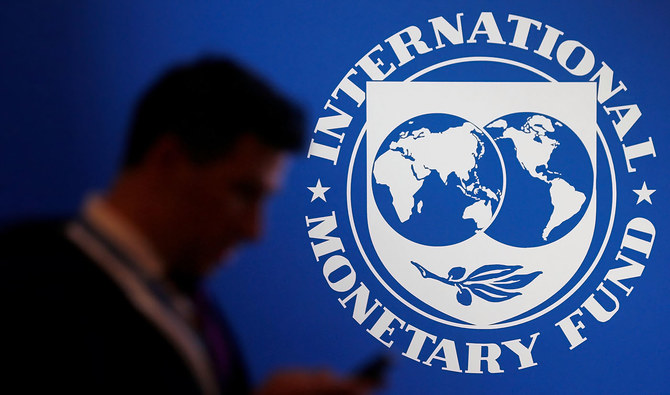
- Islamabad requested the global lender to reschedule the meeting in end-January
- Pakistan’s parliament is expected to debate IMF-desired mini-budget this week
Pakistan eye comeback against New Zealand in fourth T20I today
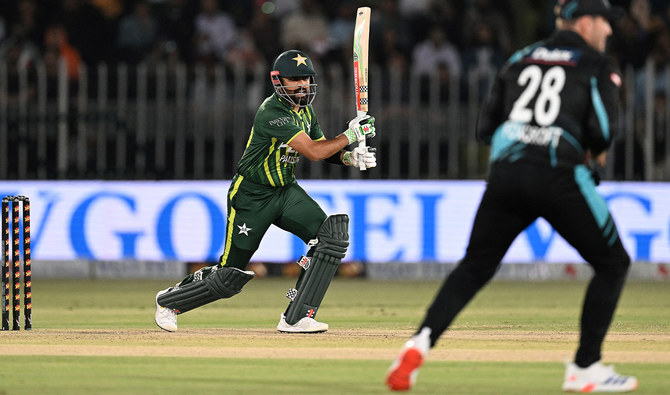
- A second-string New Zealand squad beat Pakistan by seven wickets on Sunday in Rawalpindi
- Skipper Babar Azam says pacers Shaheen Shah Afridi, Naseem Shah have ability to make comeback
ISLAMABAD: Pakistan will be eyeing a comeback today, Thursday, in the fourth match of the T20I series against New Zealand in Lahore after suffering a defeat at the hands of a second-string Kiwi squad last week.
Pakistan will head into today’s match against Michael Bracewell’s squad without star batter and wicketkeeper Muhammad Rizwan, who has been pulled from the series after he felt discomfort in his right hamstring.
New Zealand are missing key players including Trent Boult and skipper Kane Williamson as they opted to play in the lucrative Indian Premier League (IPL) while pulled out of the Pakistan series due to injuries.
Despite that, the Kiwis managed to beat Pakistan on Sunday by seven wickets in Rawalpindi, shocking the 2009 T20I world champions on their own turf.
“We did not lose because of any two or three players,” Pakistan captain Babar Azam said at a press conference in Lahore on Wednesday night. “We lost as a team. In the batting, bowling and fielding [areas] we did collapse a little.”
Pakistan’s premium fast bowlers Naseem Shah and Shaheen Shah Afridi failed to impress against New Zealand in the third T20I. However, Azam backed both bowlers, describing them as Pakistan’s “best” bowlers.
“They know how to make a comeback, even if it [bad performance] happens in one game. It is part of life,” he said. “It can’t happen that one person performs every single day.”
The series is an important one for both sides as they gear up for the ICC T20 World Cup 2024 in the West Indies and USA scheduled to be held in June.
The last match of the Pakistan-New Zealand series will be played in Lahore on May 27. Pakistan and New Zealand have both won one match against each other so far, with the first T20I fixture washed away by rain.
The match begins at 7:30 p.m. Pakistan Standard Time.
Pakistan suffered more from Afghan ‘imbroglio’ than wars with India — special envoy to Kabul
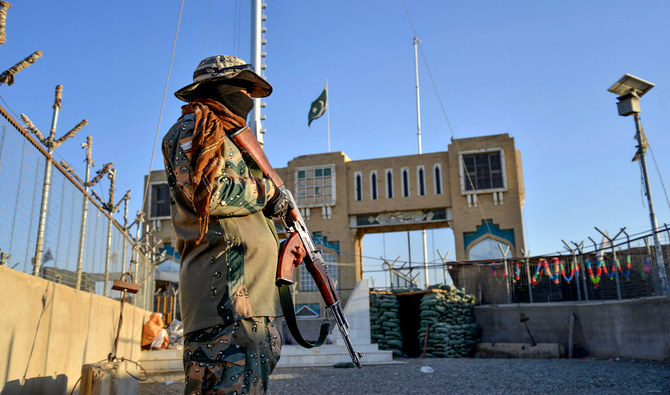
- Ambassador Durrani hopes Pakistan will overcome security threats from Afghanistan through diplomacy
- He warns of growing hostilities in the Middle East, saying the Iran-Israel conflict can engulf the region
ISLAMABAD: Pakistan’s Special Representative for Afghanistan Ambassador Asif Durrani acknowledged that his country had suffered a great deal more due to the volatility in its northwestern neighborhood than its recurrent wars in the east with nuclear-armed India while addressing a conference on Wednesday.
Durrani issued the statement during a penal discussion at the Institute of Strategic Studies Islamabad while sharing a broad overview of his country’s threat perception. Pakistan blamed the administration in Kabul last year in November for not doing enough to address its security concerns by clamping down on militants operating from Afghanistan.
It even maintained there was enough evidence that Afghan authorities were “facilitating” attacks launched by the Tehreek-e-Taliban Pakistan (TTP) against its people and security forces. Subsequently, Pakistan started deporting “illegal immigrants,” mostly Afghans, from its cities while citing security reasons.
“Afghanistan has become a permanent fixture in Pakistan’s regional paradigm for over four decades,” Durrani told the gathering. “In terms of blood and treasure, Pakistan has suffered more due to the Afghan imbroglio than its three wars with India.”
“Over 80,000 Pakistanis have died in the past two decades during the so-called war on terror,” he continued. “The country is still counting its dead and injured. After the withdrawal of the NATO forces, it was hoped that peace in Afghanistan would bring peace in the region. However, such expectations were short-lived.”
Durrani maintained that TTP attacked had increased by 65 percent after the departure of international forces while suicide bombings had shot up by 500 percent.
“The TTP’s enhanced attacks on Pakistan while using Afghan soil have been a serious concern for Pakistan,” he said. “Another worrying aspect is the participation of Afghan nationals in these attacks.”
He hoped that his country would overcome threats emerging from Afghanistan through diplomatic means, though he warned of the rising tensions in the Middle East while pointing out that the Iran-Israel conflict, if not contained, could engulf the whole region.
“Pakistan will also suffer,” he added.
Durrani said the estimated economic cost suffered by his country since the US-led “war on terror” was somewhere around $150 billion.
Pakistan doubles down on completing Iran gas pipeline despite threat of sanctions
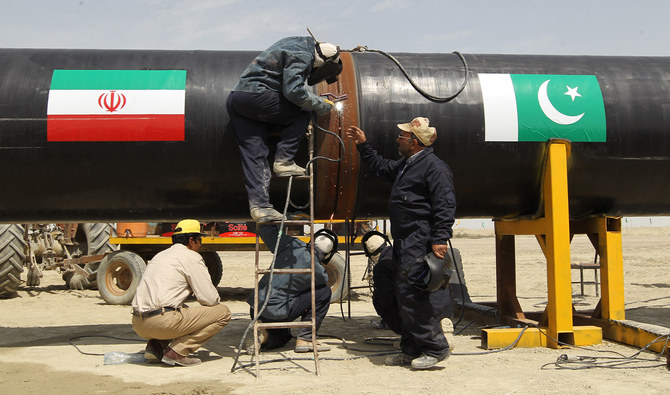
- Major gas pipeline deal has faced delays due to geopolitical issues and international sanctions
- On Wednesday, US warned that countries doing business with Iran faced the “potential risk of sanctions”
ISLAMABAD: Defense Minister Khawaja Asif said on Thursday Pakistan would find a way to complete a major gas pipeline deal with Iran which has faced delays for years due to geopolitical issues and international sanctions.
During a visit by Iranian President Ebrahim Raisi to Pakistan this week, the two nations reiterated the importance of cooperation in the energy domain, including trade in electricity, power transmission lines and the IP Gas Pipeline Project, a joint statement released following the culmination of the visit said.
“We will find a way to complete it,” Asif told reporters when asked if Pakistani officials had discussed the stalled pipeline with Raisi.
In March, Islamabad said it would seek a US sanctions waiver for the pipeline. However, later that week, the US said publicly it did not support the project and cautioned about the risk of sanctions in doing business with Tehran.
On Wednesday, the United States once again warned that countries doing business with Iran faced the “potential risk of sanctions.”
“Just let me say broadly, we advise anyone considering business deals with Iran to be aware of the potential risk of sanctions,” a State Department spokesperson said when asked about the Iranian president’s Pakistan visit and agreements signed. “But ultimately, the government of Pakistan can speak to their own foreign policy pursuits.”
The pipeline deal, signed in 2010, envisaged the supply of 750 million to a billion cubic feet per day of natural gas for 25 years from Iran’s South Pars gas field to Pakistan to meet Pakistan’s rising energy needs. The pipeline was to stretch over 1,900 kilometers (1,180 miles) — 1,150 km within Iran and 781 km within Pakistan.
Tehran says it has already invested $2 billion to construct the pipeline on its side of the border, making it ready to export. Pakistan, however, did not begin construction and shortly after the deal said the project was off the table for the time being, citing international sanctions on Iran as the reason.
Iran’s oil minister at the time responded by saying that Iran carried out its commitments and expects Pakistan to honor its own, adding that Pakistan needs to pick up the pace of work.
In 2014, Pakistan asked for a 10-year extension to build the pipeline, which expires in September this year. Iran can take Pakistan to international court and fine the country. Local media reported that Pakistan can be fined up to $18 billion for not holding up its half of the agreement.
Faced with a potential fine, Pakistan’s caretaker administration earlier this year gave the go ahead in principle to commence plans to build an 80 km segment of the pipeline. In March, Pakistan announced it would seek a sanctions’ waiver.
Washington’s support is crucial for Pakistan as the country looks to sign a new longer term bailout program with the International Monetary Fund (IMF) in coming weeks.
Pakistan, whose domestic and industrial users rely on natural gas for heating and energy needs, is in dire need for cheap gas with its own reserves dwindling fast and LNG deals making supplies expensive amidst already high inflation.
Iran has the world’s second-largest gas reserves after Russia, according to BP’s Statistical Review of World Energy, but sanctions by the West, political turmoil and construction delays have slowed its development as an exporter.
Originally, the deal also involved extending the pipeline to India, but Delhi later dropped out of the project.
With inputs from Reuters
Pakistan refiners, fuel station owners oppose price deregulation, fear business closures
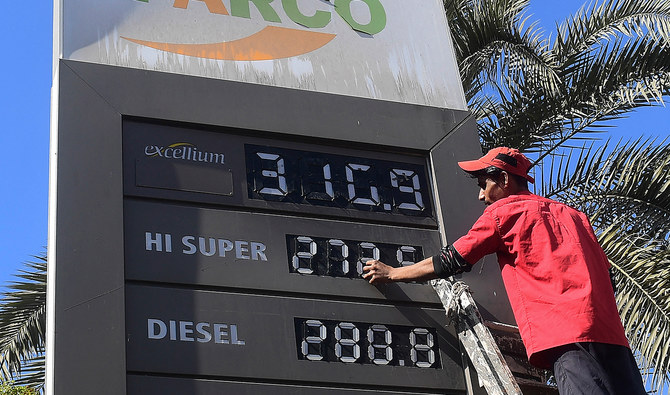
- Petroleum dealers say government wants to avoid public criticism and shift the burden of high oil prices to consumers
- Oil refineries also opposed deregulation earlier this week, saying it would put their $6 billion investment at risk
KARACHI: After Pakistan’s oil refineries, petroleum dealers announced their decision to oppose the deregulation of fuel prices in the country on Thursday, saying the move would adversely impact their businesses and lead to their closure.
The Oil and Gas Regulatory Authority (OGRA) of Pakistan briefed the energy ministry on the possible deregulation of petroleum products on April 17, prompting five of the country’s oil refineries to write a letter in which they described it as complex and critical issue.
The deregulation proposal would empower oil marketing companies to determine fuel prices on the basis of various market forces. Local consumers getting petrol and diesel from places closer to ports and refineries would get relatively cheaper products due to the transportation cost.
“The deregulation is the death warrant for the people and the petroleum industry in the country,” Abdul Sami Khan, Chairman of Pakistan Petroleum Association, said at a media briefing along with other dealers at the Karachi Press Club. “If this is imposed on us, we will be compelled to shut down our businesses.”
The dealers present at the briefing said the deregulation would cause an increase in the prices of petroleum products and make it difficult to maintain the quality of the fuel.
They said giving mandate to oil marketing companies to determine oil prices would be unwise and lead to different market rates.
“The government wants to shift the burden of price hike to people and get rid of the public criticism amid spiraling rates of petroleum products,” Khan added.
He said the smuggled Iranian oil had been openly sold in Pakistan, though it was not refined and damaged engines of vehicles.
He also asked the government to legalize it “in the larger public interest.”
“An agreement should be made to import crude oil from Iran to end smuggling,” Khan suggested. “The crude oil bought from Iran can be refined locally.”
Malik Khuda Buksh, senior leader and founding member of the association, said the deregulation would “create chaos in the market” since everyone would be quoting their own prices.
“Under the current mechanism, the government fixes the prices and no one can charge a single paisa more,” he explained while speaking to Arab News after the news briefing. “When the deregulation takes place, every oil marketing company will give its own price like vegetable and other product sellers, which will lead to further inflation.”
Like refiners, the petroleum dealers also warned that the deregulation of petroleum prices in Pakistan would negatively impact their business.
The letter jointly written by Attock Refinery Limited, Cnergyico PK Limited, National Refinery Limited, Pakistan Refinery Limited and Pak Arab Refinery Limited said the deregulation could jeopardize nearly $6 billion of investment.
The letter maintained it was better to spend money on upgrading the refineries since it would not only result in cleaner and environment-friendly fuels of Euro-V specifications but would also help save precious foreign exchange by substantially increasing local production.
Pakistan women’s great Bismah Maroof retires from international cricket

- Maroof, an allrounder, batted left-handed and scored 6,262 runs including 33 half-centuries
- Maroof captained Pakistan in 96 internationals, including at fourth World Cup in 2022
LAHORE: Former Pakistan women’s captain Bismah Maroof retired from international cricket on Thursday after 276 games in an 18-year career.
“I have decided to retire from the game I love the most,” the 32-year-old Maroof said in a statement on Thursday. “It has been an incredible journey, filled with challenges, victories, and unforgettable memories.”
Maroof, an allrounder, batted left-handed and scored 6,262 runs including 33 half-centuries — three ODI scores in the 90s — and bowled right arm leg break and bagged 80 wickets.
She was 15 when she debuted for Pakistan in 2006 in a one-day international against India, and three years later played her first Twenty20 against Ireland.
Maroof took a break in 2021 to give birth to her first child and said she was grateful for a parental policy that extended her career.
“The support from the PCB has been invaluable, particularly in implementing the first ever parental policy for me, which enabled me to represent my country at the highest level while being a mother,” Maroof said.
Maroof captained Pakistan in 96 internationals, including at her fourth Women’s World Cup in 2022 in New Zealand.










